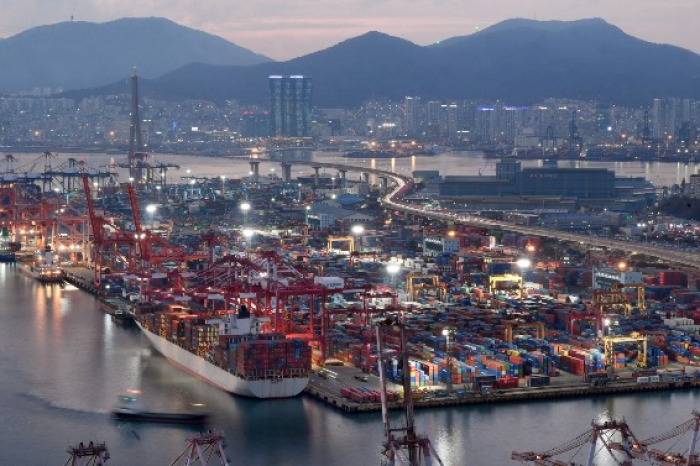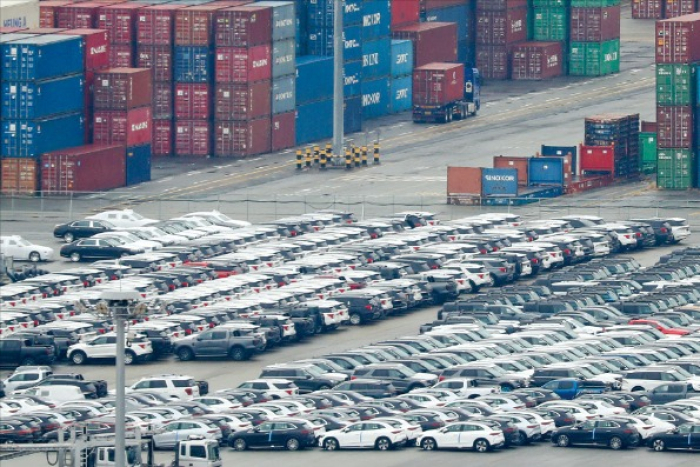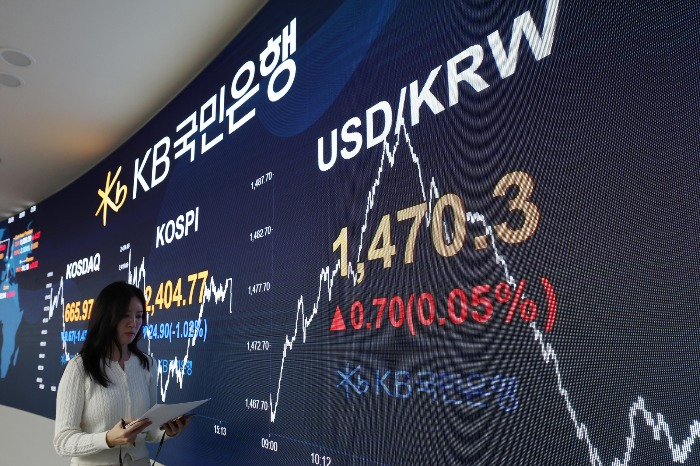
South Korea has significantly narrowed the gap in export value with Japan to a record low of $20.2 billion so far this year, but the country’s export outlook is grim next year as it faces looming political, trade and social headwinds.
The value of Korea’s international outbound shipments from January to November this year stood at $622.39 billion, up 9% from the same period of last year, according to the Korea International Trade Association (KITA) on Sunday.
KITA’s analysis of the preliminary trade data of Japan’s Ministry of Finance also showed that the export value of Asia’s second-largest economy reached $642.60 billion, making Korea’s gap with Japan in export value its smallest-ever $20.2 billion.
The difference has steadily narrowed from $303.6 billion in 2010 to $155.2 billion in 2013 and $111.6 billion in 2021. It further shrank to $63.24 billion in 2022 and then rebounded to $85.04 billion in 2023.
According to the state-run Korea Trade-Investment Promotion Agency (KOTRA), Korea ranked the world’s sixth-largest exporter based on the total tally in the January-October period this year, climbing two notches from a year ago.
Japan stayed as the world’s fifth-largest exporter for the last three years in a row.
A rise in Korea’s outbound shipments was mainly driven by strong demand for Korean goods from the US, China and ASEAN member countries, which together accounted for 54.9% of Korea’s entire exports.
KITA attributed brisk sales of Korean semiconductors and computers and growing demand for Korean cosmetics and pharmaceutical products to the narrower gap in export value between Korea and Japan.
Japan has been grappling with growing challenges from China and Korea in exports of its traditional mainstay export items such as automobiles, ships and intermediate goods.
On top of that, the expatriation of factories and plants from Japan to other countries has also lowered exports of Made-in-Japan products, which offset the favorite weak-yen impact on the country’s exports, said the KITA.

KOREA FACES A GRIM TRADE OUTLOOK IN 2025
But also this could become a major concern for Korea’s export in the long run as major exporters of Asia’s No. 4 economy have recently moved their manufacturing bases to other countries to avoid high tariffs and labor costs.
Korea’s two-largest export destinations, the US and China, have heightened trade barriers to protect their domestic industries and economy, forcing Korean companies to build more local plants in the two nations.
Korean companies also actively consider building plants in Europe and Southeast Asia where labor cost is cheaper and geopolitical risk is lower.
Fast-aging Korea with the world’s lowest fertility rate also poses a big threat to the fundamentals of the country’s manufacturing industry, which accounts for a lion’s share of the export-reliant country’s economy, according to the KITA.
The trade association projects Korea’s exports will grow at a 1-3% rate in 2025, slower than 2024 despite the anticipated robust shipments of information technology products and semiconductors.
Car exports are expected to decrease next year after their stellar performance this year and a rise in production output from foreign manufacturing bases, said the KITA.

It added that downward pressure on Korea’s exports is growing due to a fall in prices of the country’s other mainstay export item, petrochemical products.
Korea’s export growth already fell to a 14-month low in November with shipments to the world’s two biggest markets the US and China down, according to data from the Ministry of Trade, Industry and Energy earlier this month.
But the worst has yet to come. US President-elect Donald Trump — who pledged to impose huge tariffs on major trading partners such as Canada, Mexico and China — is soon to return to the White House, which could take a toll on the export-reliant Korean economy and companies.
Amid ongoing political turmoil following the impeachment of Korean President Yoon Suk Yeol for his ill-fated bid to declare martial law earlier this month, Korea is losing time in negotiations with the new US government over trade deals, concerned trade experts.
Han Duck-soo, the country’s acting president and prime minister, was also impeached in Parliament on Friday, marking the first time in the nation’s history that an acting president has been impeached.
With his job suspended, Choi Sang-mok, the finance minister and deputy prime minister, has taken over as Korea’s acting president.
On Thursday, the Korean won – already the weakest currency in Asia this year – tumbled to levels against the US dollar not seen since the 2009 global financial crisis. It fell further to close at 1,467.5 per dollar in Seoul on Friday.
By Jung-hwan Hwang
jung@hankyung.com
Sookyung Seo edited this article.














